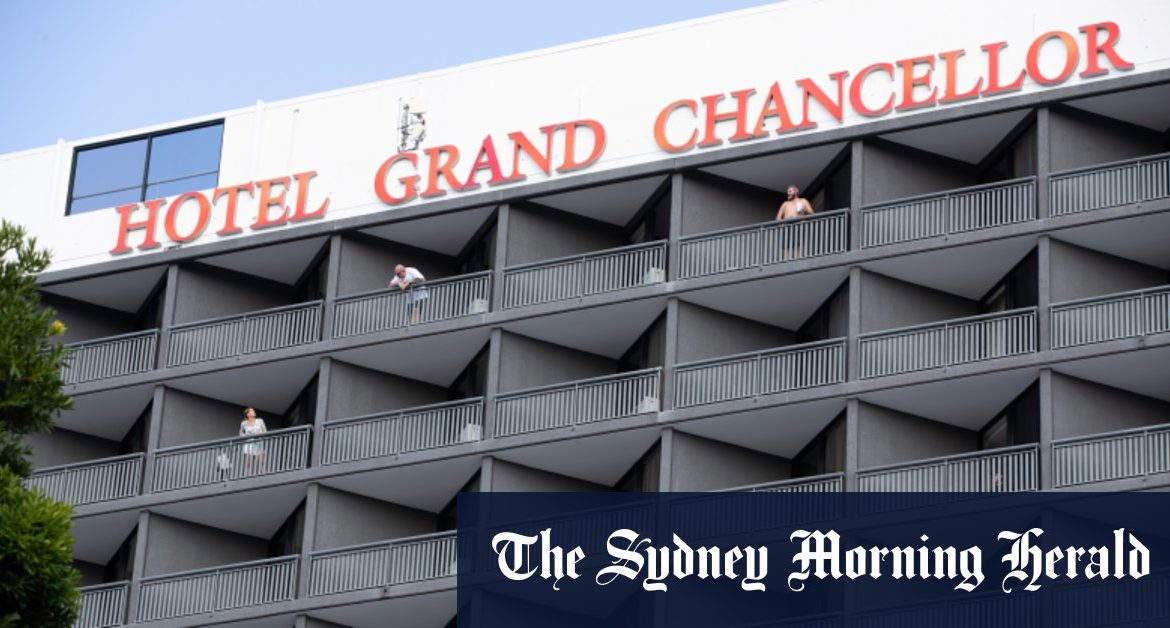Swab results from hotel room walls, airconditioning units, elevator buttons and other parts of the hotel were expected to be handed to authorities this week.
“There’s still a concern that airconditioning might be a problem,” Mr Gollschewski said.
“We’re waiting for the advice on the airconditioning, about whether that’s in or out.”
Mr Gollschewski said some hotel rooms had individual airconditioners, while others had shared ducted units.
“If each room has its own split system, it is not going to be that [airconditioning],” he said.
Mr Gollschewski likened the investigation to the board game Cluedo.
“So we’re trying to go through all things that it could possibly be and eliminating them one at a time,” he said.
“Then we will be left with a few things that it could have been. Whether we can then conclusively prove what it is … I don’t know, that will depend a lot on the interviews.”
The findings were expected to be made public.
“Obviously we’re looking at has someone deliberately done the wrong thing,” Mr Gollschewski said.
“We, being coppers, we always keep our options open in terms of whether someone has done the wrong thing. In that case, there will probably be a separate investigation.”
While police had not uncovered any evidence of wrongdoing, they were also investigating whether protocol had lapsed when staff were preparing and delivering meals, as well as removing rubbish.
“That hotel has been run very well and I am concerned about the impact on their reputation because they’ve actually tried to do the right thing all the way through, so they should not suffer for that,” Mr Gollschewski said.
He said the fact there was no obvious point of transmission “just shows you how scary this thing is”.
“Think about how many days in a row we hear there are new cases in hotel quarantine. We cannot afford to have hotel quarantine not doing what it is supposed to do.”
Earlier this month, the national cabinet agreed to temporarily slash the cap on the number of international arrivals while the country worked to reduce the risks around the new mutant strain.
Greater Brisbane was declared a Commonwealth hotspot because it was the first time Australian health authorities had detected a new and more infectious coronavirus strain in the community.
Brisbane, Moreton Bay, Logan, Redlands and Ipswich council areas were locked down for three days and the Hotel Grand Chancellor was evacuated, with 129 guests moved in ambulances to the Westin.
The hotspot declaration was lifted at the weekend but restrictions on social gatherings and rules on wearing masks in public remained until at least 1am on Friday, January 22.
Premier Annastacia Palaszczuk was expected to push for an immediate overhaul of Australia’s quarantine system at the national cabinet on Friday.
Lydia Lynch is Queensland political reporter for the Brisbane Times
Most Viewed in Politics
Loading







